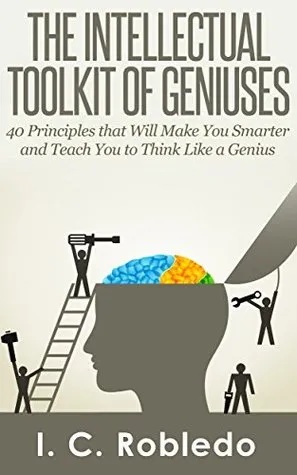Where do I start?
When we learn something new, we often can't figure out where to start. But there's also a dilemma when you already know but want to get back to it. Where do I start with the current skills and knowledge that I have?

There's also a problem with underestimating/overestimating a talent and skills. This self-assessment bias is even capturing the researcher's interest to find the cause of it. In the research titled , Why Do People Overestimate or Underestimate Their Abilities? A Cross-Culturally Valid Model of Cognitive and Motivational Processes in Self-Assessment Biases they conclude that self-confidence plays a role in overestimating and underestimating oneself ability. Another paper from Edward Wells also supported the notion about self-assessment bias linked to confidence A Test of Three Models of Bias in Self-Assessment . From these two papers, we can also learn that we are unconsciously labeling ourselves. We tell others that we are not confident, that we are no this or that. But truthfully, those things can be tackled with some continuous and straightforward practices.
There's a saying, " you are what you tell others and that's how others will perceive you." That said, you should not be upset when someone perceives you in a certain way because that's what you tell them. And often, people communicate at a face value level. So, don't expect them to read between the lines. From many kinds of literature, I read that if you want to be more confident, act like it and tell others good things about yourself instead of your shortcomings.
But... I still have low self-esteem... can I always learn how to stop being bias with my skills?
Unfortunately, the researcher has not even figured out how to prevent self-assessment bias. The paper titled The Social Psychology of Biased Self-Assessment found out that attempt to address discrimination is unlikely and that there's only a suggestive conclusion instead of a conclusive approach to tackle this.
So now what?
Knowing there's always a bias linked to confidence, there's only one word that comes to mind, goal. This word comes to mind because, from many personal experiences, a plan helps with this self-bias assessment. It does not matter where my skills are. The thing that matters that time is my goal.
Two scenarios often happen in my life. The first one is new to the field, but I have a goal to master it. Hence, I started with the very basics of things; the introduction to that subject. You can always expand your knowledge and eventually learn something new or discover something new from that introduction.
The scenario is when I have mastered a skill but am not confident about it. However, I have a specific goal that needs me to rely on that skill. In that case, I will rely on my skill and mentioned the credentials that I have from that certain sets of skills.
There's a tangible way to measure competence. Some tests are used to measure our knowledge or skills. This is the way we can partly erode the self-assessment bias. However, when we talk to someone, we may still have this self-assessment bias motivated by many things, including humility. So, again this all a complicated thing.
But when you want to learn something or start something, there's always an introduction to it. I guess that's what I love to do and read an introduction to a subject that I am currently learning. Now that we know where to start, we can learn how to further our learning. Indeed, there are many websites, books, and articles that have touched this subject. I recently found this short and practical guide that may help us think more effectively like the Geniuses.

What makes those people Genius?

A book by I.C. Robledo lays out 40 principles that may make us smarter than we are. It's called The Intellectual Toolkit of Geniuses: 40 Principles that Will Make You Smarter and Teach You to Think Like a Genius a lengthy title for a short book. Robledo stated that his 40 principles are his finding by researching geniuses' lives in the past and interacting with the intellectuals and studying them. He seems to have a fascination with this topic, which is portrayed quite well in the book.
Anyone who wants to start learning or reading may check this book because it will help you understand its techniques. For instance, Principle #2 Learn from multiple formats or methods. When you are curious about something, you want to know everything you know about that subject. By that principle, the author lays out that to learn, you need to learn from one source and multiple sources. I agree with that approach; when you are curious, you will override almost anything to know about it. It does not matter if they are on the other side of the political spectrum, enemies, whatever, I am willing to learn from them because they know what I don't know, and I want to know it.
There's also another principle that is often forgotten these days. This book reminds you that principle #4 No one weighs the importance of facts for you. Weight them yourself. According to a paper on attention span, there's a dogmatic attention span which is 10-15 minutes for a lecture. That is a pretty short attention span. Hence why these days, reading long-form content is not something that people do. Even content marketers try to keep their information quick and segmented. There's even a saying these days," who reads anyway?" well, apparently, some of us are still reading. And that being said, you can and should not rely on those nitpicked articles that someone wrote for you. It would be best if you weighed on the presented facts and, again, search as many sources as possible.
This book also reminds you that in principle #6, everyone is always trying to sell you something. And that is not still about objects; it can be ideas. They want you to believe in their narratives. So, always be careful when someone is trying to sell you their narratives or ideas; when it comes to learning, that will also impact your judgment to a sure thing. When you learn, you want to know everything there is to know. So, you can not be fixated on one thing.
At some point, this book feels like another self-improvement book. However, the books still carry some relevance to learning and learn as short as it is. This book not only shows you how to be book smart but also street smart. This will help you to navigate your life with its short principles that you can always expand. You probably won't be a genius, but this book will help you better learn something and help you with your learning approach.
I got this book from google books, and I think it was a relatively short read but reminds me of things that I have not practiced in many years. It was fueling my curiosity towards learning. Hence, I came up with the question, where do I start? I wanted to start learning so many things. I also think that this book is more suitable for the younger demographic at in age of 12 as I believe they will be helped with this perspective in life compared to people like me who have been a bit corrupted here and there. This is the kind of book that I wished to read when I was 12 years old or even younger.


